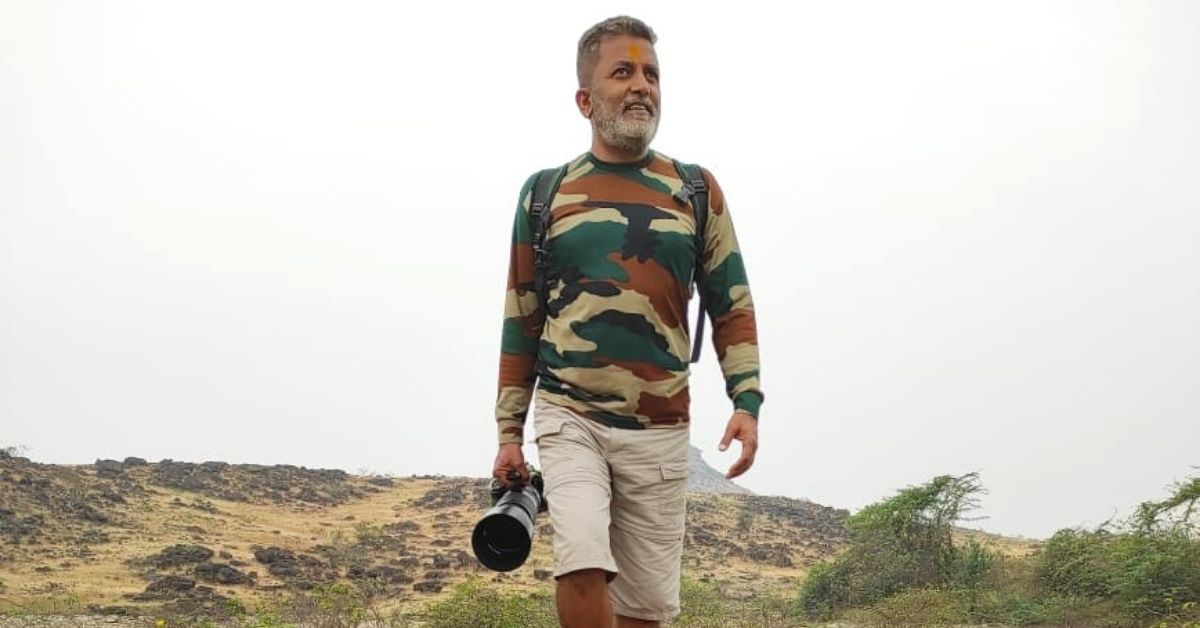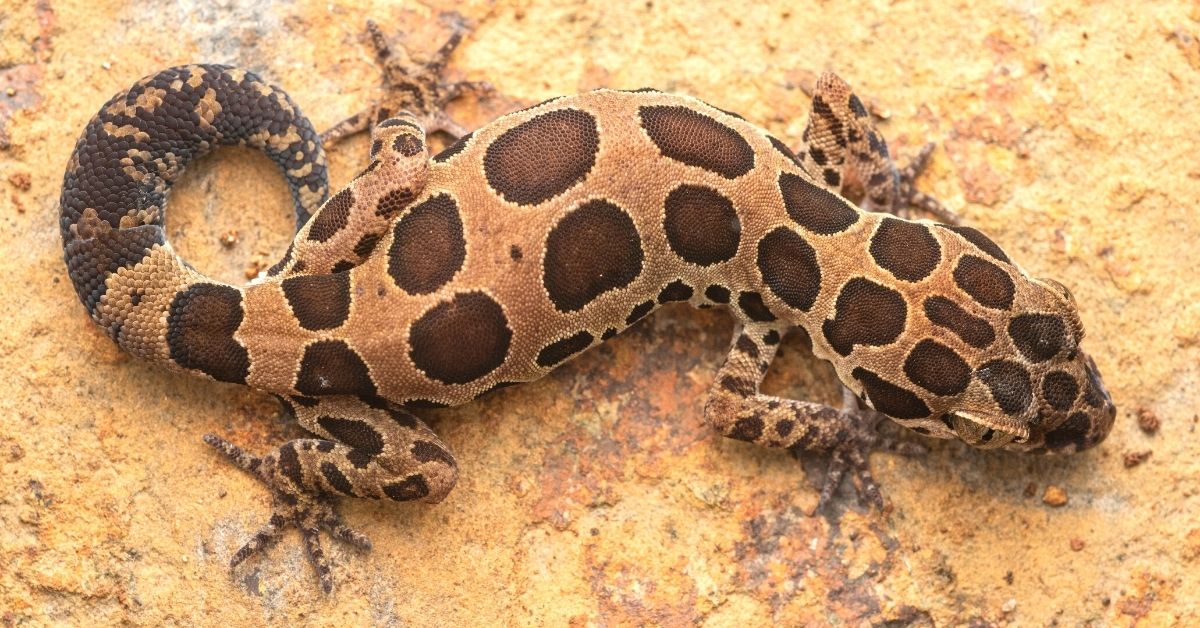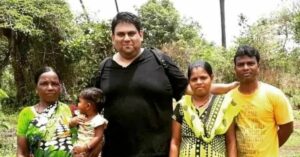Meet The Man Who Discovered 56 Reptile Species & Can Help You Find One Too
Dr Varad Giri is a herpetologist who has created hundreds of citizen scientists by helping them discover new species of amphibians and reptiles

On 2009, Hemant Ogale, a mechanical engineer, photographed a snake he found in the forests of the Western Ghats in Dicholi, Goa. He found the reptile fascinating for the spectrum of orange and dusky brown pattern on its body. He returned home and shared the pictures with his mentor, Dr Varad Giri, a herpetologist, only to realise that the snake species was so far undocumented in any scientific journal.
“In 2012, we described the snake as Castoe’s Coral Snake, or the Calliophis castoe in Zootaxa, an international journal, declaring it as a new species,” Hemant, a native of Amboli in the Konkan region, says. “I had no technical know-how or interest in reptiles or amphibians. But thanks to Dr Varad and his guidance, I am a full-time researcher and environmentalist now.”
Like Hemant, there are at least 200 citizen scientists that have been groomed and nurtured by Dr Varad over the years. Beyond creating an army of citizen researchers for the conservation of wildlife, Dr Varad himself has discovered 56 species of amphibians, reptiles and geckos in the Western Ghats.
An ‘accidental’ herpetologist

Credit: Sandeep Das
Speaking with The Better India, the 50-year-old says the reason he wanted to create such citizen scientists is that he himself had entered the field of zoology without ever really planning to. And over the years, he has realised the crucial role a person without a scientific background can play in wildlife conservation.
Dr Varad says that in 1993, he wanted to pursue post-graduation in chemistry, a field that offered a stable job and income. However, his low score in academics pushed him to pursue zoology from Shivaji University in Kolhapur instead.
“During my academic years, I met one Hemant Dhamake, a senior who frequented the forest areas to watch birds, flowers and other biodiversity. I started joining him in these visits with other friends. Over time, discussing the birds and their colours, characteristics, and behaviour became a routine,” he says.
During this time, Dr Varad learned to identify birds, their scientific names, and the species that they belonged to. He also joined another friend and roommate, Anil Shingare, who was a snake rescuer.
After his graduation, he bagged a job at the Bombay Natural History Society (BNHS) by impressing the interview panel with his discovery of the Ceylon Frogmouth species for the first time in Maharashtra. “It was earlier known to be found only in Goa,” he notes.
Dr Varad says that around 2001-02, he kickstarted his career. “The Western Ghats were unexplored, and I decided to look at caecilians, which are tropical amphibians and look like snakes or worms. I also found a new species of caecilians in 2003 and named it Gegeneophis danieli,” he adds.
The same year, Dr Varad realised that more people should be involved in the study of reptiles and amphibians. “There were hardly any researchers working in the field. Hence, I collaborated with BNHS to start conducting training courses to involve people from the non-scientific community. The plan was simple. Get people to sign up, take them to the forest, encourage them to take pictures of species they come across and teach them about the same. And if someone finds a different species, handhold them in publishing a paper,” he explains.
Dr Varad says that he immersed himself in creating such a community. “I had mentors and friends who supported me financially and emotionally. My wife Kshamata sacrificed her career ambitions only to enable me to bring more researchers in the field,” he adds.

“The intention was never to take experts or scientists along, but encourage people with little enthusiasm or interest in the wilderness and ultimately help them have a deeper understanding of the biodiversity,” he notes.
R Chaitanya from Bengaluru was an IT professional and, in 2014, did a course with Dr Varad on amphibians. “Now, he has quit his job to pursue herpetology. He has discovered over 20 species in the past few years and is one of the best in the field. He is better than me, and sometimes I seek his guidance,” Dr Varad says proudly.
Narrating an incident from recent years, he notes that the sight of Hemidactylus house geckos is common in Amboli’s forest. “However, during a trip with a group of children, I informed them of its scientific identity as Hemidactylus brooki, and suggested they take pictures of the animals they find. I also told them to find a specimen and observe its features. Two hours later, they came to me and said that their findings did not match any existing records of the species,” he says, adding, “I was sure the children did not check carefully and asked them to recheck. Eventually, it turned out to be a new species altogether, and they named it Hemidactylus varadgirii.”
Varad says the incident humbled him.
His other students have named one genus of a snail slug Varadia, one snake Dendrelaphis girii, three lizards Cnemaspis girii, Cyrtodactylus varadgirii and Hemidactylus varadgirii after him. So far, he has reached out to around 50,000 students and people through his forest camps.
Dr Varad says that through his college days, and even today, Satyajeet Mane and Ashok Captain have played an instrumental role in his success. “They gave me a camera when I had none, helped me with finances, and taught me the nuances of taxonomy, which allowed me to pursue my dream. Without them, I would not have been what I am today,” he notes.
Looking beyond species discovery
In 2017, Dr Varad started his organisation called Nidus to continue his work.
Ishan Agarwal, an evolutionary biologist, says that Dr Varad has made a significant impact on Indian herpetology. “He loves interacting with everyone and guiding them. His contributions are significant to the field, and it is the same reason that most authors discovering new species name them after Dr Varad. It is an honour given for his immense contribution in the field,” he adds.
Dr Varad emphasises the need for citizen scientists, says, “Trained scientists are skilled in conducting specific research. Now to talk about natural science or research in biodiversity, there are many unanswered questions. To get that information, we need a huge number of scientists, which is a challenging task. How do we bridge this gap? With basic training, anyone interested in understanding nature can collect this information and share that with scientific platforms.”

Dr Varad says that by creating citizen scientists, he wants science to live on. “I will live for another 30-40 years. But the work on Indian herpetology should continue, and that is why I want to create many researchers,” he adds.
He is confident that such an initiative will enhance the human understanding of biodiversity. “Not many urban dwellers know what a house gecko (lizard) eats or where it lives. If we do not know about commonly found amphibians or reptiles, imagine the state of rare or undiscovered species,” he says.
Dr Varad says that beyond discovery, he is working towards the conservation of species. “What do we do after describing a new species? I had this question and recently realised that I am doing nothing for the well-being of these new species. Conservation of species requires vital information such as the habitat, the food they eat and when and how they breed. We do not have such information on them,” he says.
Dr Varad says that since 2018, he has started encouraging more citizens to upload images of various species on citizen science portals. “I hope that the data they are generating through images will be potentially utilised for some conservation measure. The pictures could involve the habitat, geographic location, or inaction when the species are eating or breeding. But it will help us learn more about them,” he adds.
When asked about his interest in species that are not visually appealing to all, he says, “Every species of plant and animal, however small or bad looking, plays an active role in maintaining the crucial balance of the ecosystem.”
“Unfortunately, due to lack of awareness, we hate many species such as reptiles and, to a certain extent, amphibians. The low numbers speak for themselves. I request everyone to understand these species,” he says.
Dr Varad adds, “No lizard is poisonous or venomous in India. The bites of all snakes are not fatal, frogs are good looking, and they are not poisonous. And the moment we realise these facts, our attitude towards the wonderful animal group will change. So try to understand them before making any negative comments.”
Edited by Divya Sethu

Similar Story

‘All For My Dad’s Memory’: This Hero Has Grown 12 Food Forests In The Heart of Mumbai
A tree lover since the age of 9, George Remedios quit his advertising job and founded ‘The Turning Tide’ to increase the forest cover in Mumbai. So far, he has planted 12 food forests with edible fruits and encourages people to grow their own food, even in limited spaces.
Read more >
If you found our stories insightful, informative, or even just enjoyable, we invite you to consider making a voluntary payment to support the work we do at The Better India. Your contribution helps us continue producing quality content that educates, inspires, and drives positive change.
Choose one of the payment options below for your contribution-
By paying for the stories you value, you directly contribute to sustaining our efforts focused on making a difference in the world. Together, let's ensure that impactful stories continue to be told and shared, enriching lives and communities alike.
Thank you for your support. Here are some frequently asked questions you might find helpful to know why you are contributing?


This story made me
-
97
-
121
-
89
-
167












